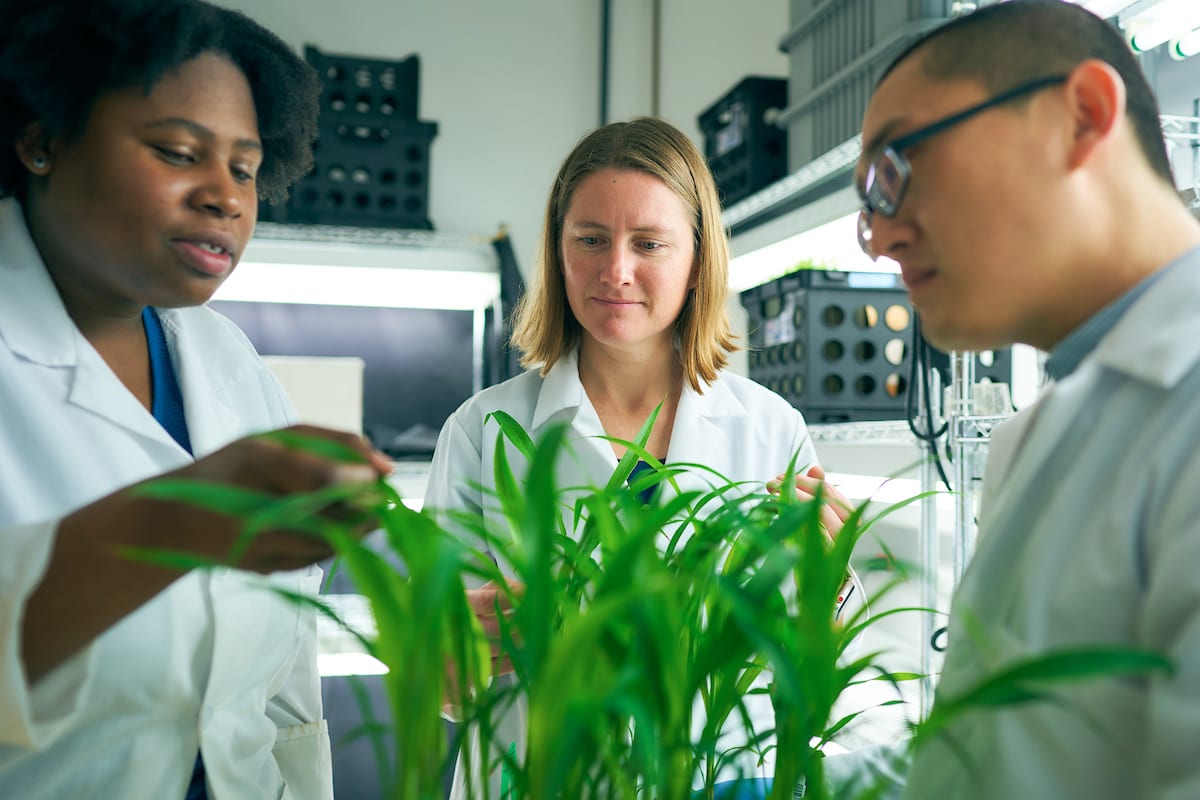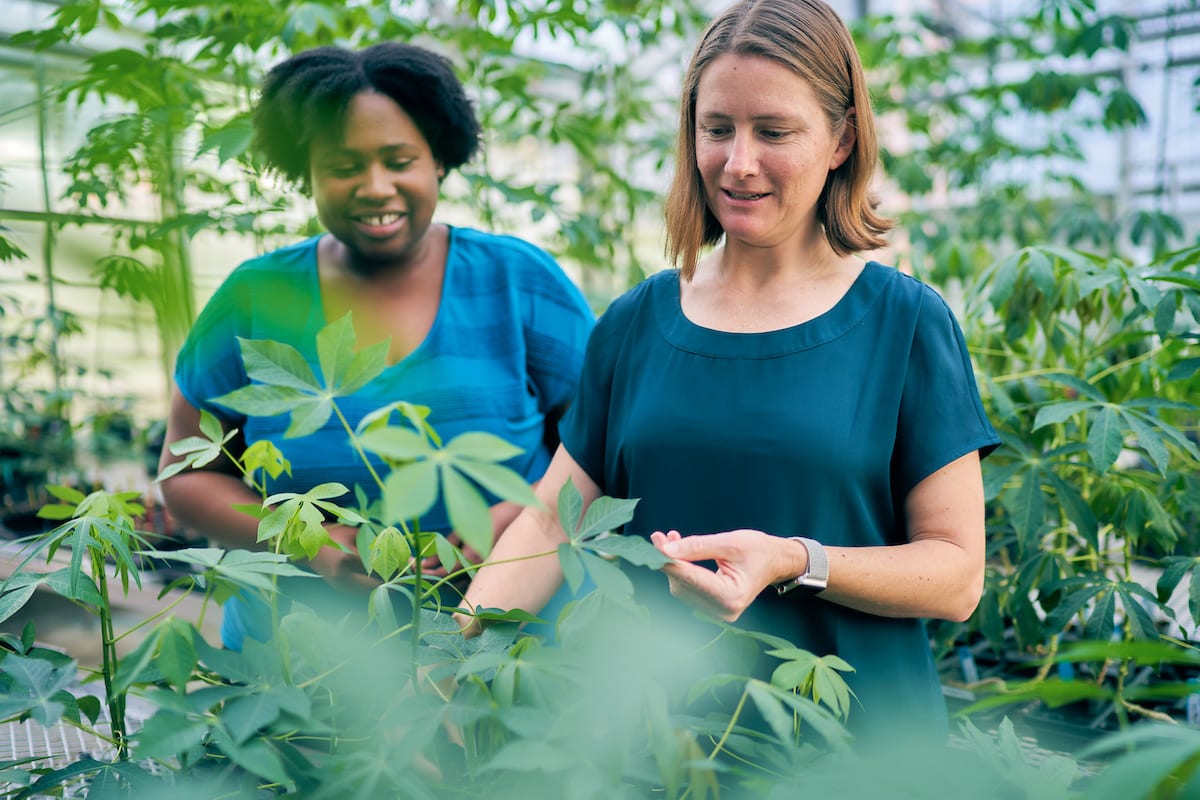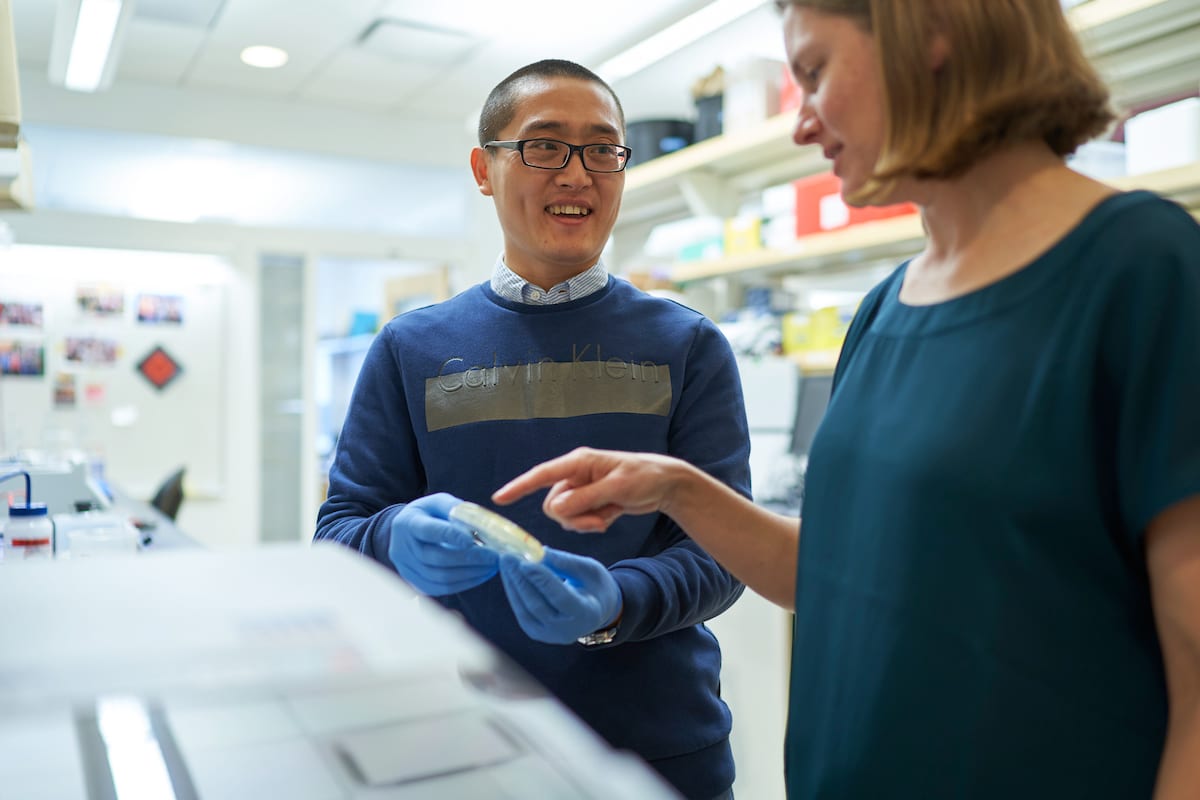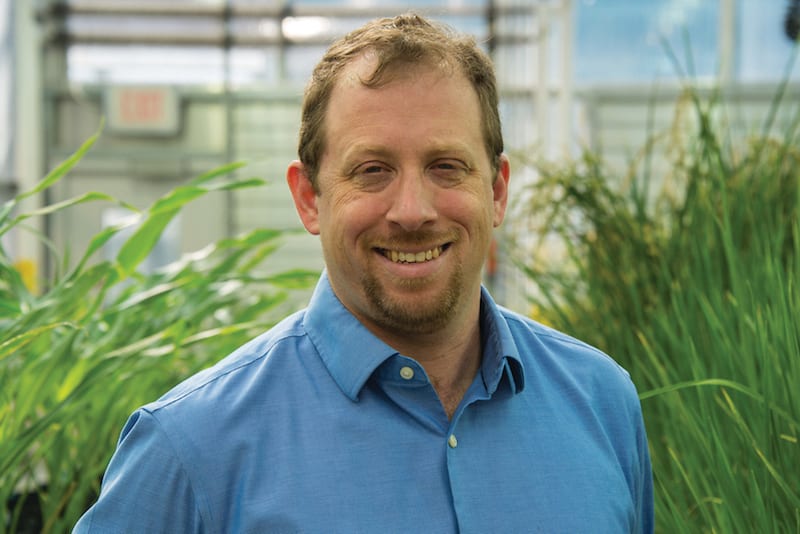The Power of Plants
Becky Bart was a biology major interested in animal systems when she studied abroad in Nepal.
“I did a research project on how Nepalese people use plants for medicine. I was amazed at the diversity of plants and through my research, confirmed that a lot of the plants they were using did indeed have antimicrobial properties.” She went on to pursue a PhD in Plant Pathology and is today a principal investigator at the Danforth Center.
The Puzzle
The Bart Lab studies how the environment affects the interaction of plants and microbes. “The way in which hosts and pathogens interact is an exquisitely specific mechanism, almost like a lock and key. That puzzle of how those two things fit together—how they are continually trying to get the upper hand—that is fascinating.”
While most plants are resistant to most pathogens, when disease does occur, it can be devastating to farmers and consumers. Pesticides are often employed in an attempt to limit spread, further adding to the total cost of disease. The Bart Lab focuses on exploring natural genetic diversity and exploiting identified traits for sustainable crop improvement.
Today, the tools to “unlock the lock” are better than ever. “With gene editing using CRISPR-Cas9 and all of its newer derivatives, we are able to ask questions, design experiments, and find answers in one-tenth the time it used to take. And also get a better, clearer, more specific answer.”

What Keeps Her Motivated
Becky believes passionately that food security is a basic human right. “Far too many people don’t have access to adequate food and nutrition. It’s connected to everything else that shows up in the news—political unrest, destruction of the rainforests, etc. The potential of foundational science to lead to a beneficial outcome for the world has kept my interest even when things are challenging.”
She also acknowledges the special role played by the nonprofit Danforth Center. “One of the things that is most important and unique about being at the Danforth Center and doing this work, is that we can prioritize purely by what is important and focus on that. Sometimes you discover something you weren’t even looking for simply by asking questions and trying to answer them. And the infrastructure we have access to is unparalleled.”

Innovative Leap
During her career as a plant pathologist, Becky cites the discovery of RNA interference (or RNAi) as a major leap forward. “It’s a natural mechanism that plants have to defend themselves. It has potential benefits in crops to control virus diseases as an effective mechanism for doing crop improvement.”




